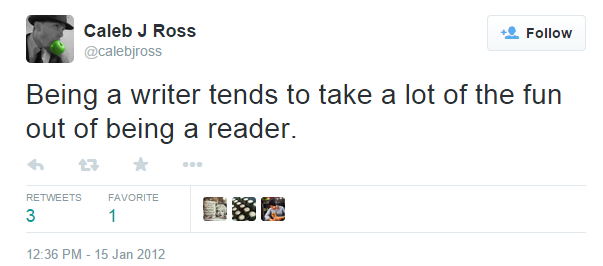Up-front apologies for the sound quality for the first 10 minutes of this episode. Though, don’t let this apology deter you from listening; Pablo’s lovely voice (and Caleb’s less lovely voice) still shine through. After the 10 minute mark, everything becomes crystal clear(er). Caleb J. Ross and Pablo D’Stair discuss a recent tweet sent from @calebjross that speaks to the problem of authors and their reading habits, particularly about how being a writer tends to lessen the enjoyment of reading. Of course, part of the enjoyment that writers get from reading comes from the dissective act of reading, but what about when we just want to enjoy a damn story? Is it possible for a writer to be a passive reader?
Category Archives Welcome the The Velvet Podcast
The Velvet Podcast ran for about 2 years from 2010 to late 2011. Each episode gathered some amazing minds from The Velvet writing and reading community to discuss various writing-related topics from the problems with live readings, the self-centered baggage that comes along with calling yourself a writer, and even the overlap of commercial and literary fiction. I also interviewed some of the greatest writing and publishing minds of our time including Brian Evenson, Matt Bell, Jane Friedman, and more. Collected here are the entire 18 episodes from the too-short-lived podcast’s life.
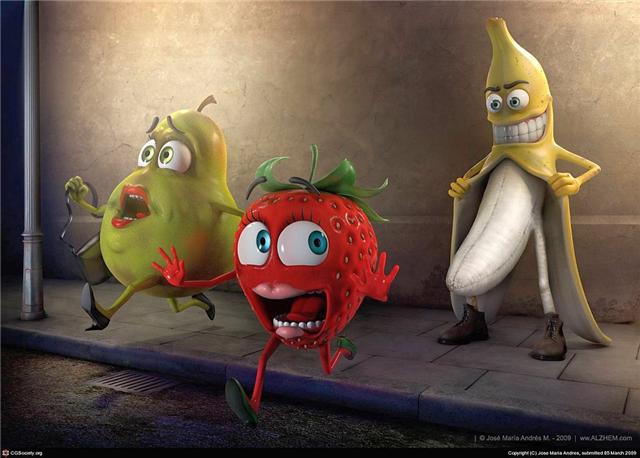 [powerpress]
Fresh off of his announcement of a contest in which he will challenge any writer of crime flash fiction in a monetarily-prized writing battle, Pablo D’Stair explores with Caleb J. Ross the impetus to his denouncement of the abbreviated medium and what exactly it is about the flash form that has elicited such a reaction.
Caleb J. Ross (I Didn’t Mean to be Kevin, As a Machine and Parts) and Pablo D’Stair (they say the owl was a baker’s daughter: four existential noirs, you’re dead and i killed you: a conversational anthology of crime, noir, and murder) discuss the idea of flash fiction, particularly how it speaks to the writer’s ego, perhaps more than it does a reader’s interest.
[powerpress]
Fresh off of his announcement of a contest in which he will challenge any writer of crime flash fiction in a monetarily-prized writing battle, Pablo D’Stair explores with Caleb J. Ross the impetus to his denouncement of the abbreviated medium and what exactly it is about the flash form that has elicited such a reaction.
Caleb J. Ross (I Didn’t Mean to be Kevin, As a Machine and Parts) and Pablo D’Stair (they say the owl was a baker’s daughter: four existential noirs, you’re dead and i killed you: a conversational anthology of crime, noir, and murder) discuss the idea of flash fiction, particularly how it speaks to the writer’s ego, perhaps more than it does a reader’s interest.
 [display_podcast]
All writers must edit. Most writers despise editing. Therefore, writers tend to look for ways to make the editing process, if not easier, at least more digestible. Authors Gavin Pate (The Way to Get Here), Gordon Highland (Major Inversions), Caleb J. Ross (Stranger Will), and Richard Thomas (Transubstantiate) gather to discuss how each approach the task of editing, including ways to make editing fun and tricks to editing easier.
[display_podcast]
All writers must edit. Most writers despise editing. Therefore, writers tend to look for ways to make the editing process, if not easier, at least more digestible. Authors Gavin Pate (The Way to Get Here), Gordon Highland (Major Inversions), Caleb J. Ross (Stranger Will), and Richard Thomas (Transubstantiate) gather to discuss how each approach the task of editing, including ways to make editing fun and tricks to editing easier.
 [display_podcast]
Caleb J Ross interviews author Alan Emmins about his book Mop Men: Inside the World of Crime Scene Cleaners, for which the author spent time with a California crime scene cleaning company, scrubbing away the stains left by the dead.
Mop Men could have easily steered into true crime territory, adhering to all the formalities and he-said-she-said that defines the genre. Instead, Emmins allows the reader to experience the morbid situations as an invested voyeur. As Alan writes of his own self-reflection – disturbed, intrigued, and changed by the horrific crime scenes he helps clean – the reader must reflect as well.
[display_podcast]
Caleb J Ross interviews author Alan Emmins about his book Mop Men: Inside the World of Crime Scene Cleaners, for which the author spent time with a California crime scene cleaning company, scrubbing away the stains left by the dead.
Mop Men could have easily steered into true crime territory, adhering to all the formalities and he-said-she-said that defines the genre. Instead, Emmins allows the reader to experience the morbid situations as an invested voyeur. As Alan writes of his own self-reflection – disturbed, intrigued, and changed by the horrific crime scenes he helps clean – the reader must reflect as well.
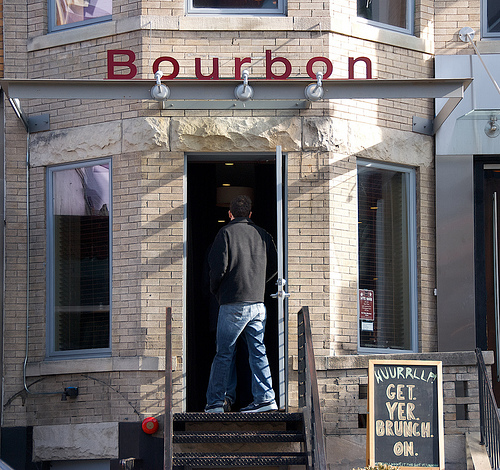 [display_podcast]
Fresh from their own live readings, Caleb J Ross (Stranger Will), Ben Tanzer (You Can Make Him Like You), Ryan W. Bradley (publisher, Artistically Declined Press), Nik Korpon (Stay God), and Brandon Tietz (Out of Touch) have a sit down at Bourbon in Washington DC to discuss the hows and whys of author performance.
Performance is part of the author’s life. Many of us may prefer the romance of the hermit writer to the reality of the performing writing, but as the culture shifts to a system of ever-spilling minutia (Twitter) and increasingly fragmented media distribution channels (hundreds of TV channels, YouTube, Hulu, and on and on), the author is expected to play an active role in selling both his book and himself. Performance—live author readings—offers a unique opportunity to do both.
[display_podcast]
Fresh from their own live readings, Caleb J Ross (Stranger Will), Ben Tanzer (You Can Make Him Like You), Ryan W. Bradley (publisher, Artistically Declined Press), Nik Korpon (Stay God), and Brandon Tietz (Out of Touch) have a sit down at Bourbon in Washington DC to discuss the hows and whys of author performance.
Performance is part of the author’s life. Many of us may prefer the romance of the hermit writer to the reality of the performing writing, but as the culture shifts to a system of ever-spilling minutia (Twitter) and increasingly fragmented media distribution channels (hundreds of TV channels, YouTube, Hulu, and on and on), the author is expected to play an active role in selling both his book and himself. Performance—live author readings—offers a unique opportunity to do both.
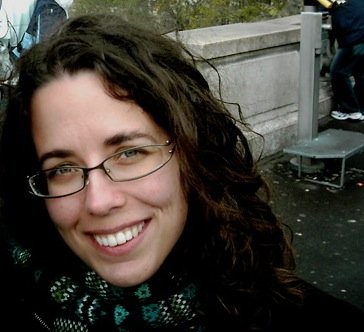 [display_podcast]
Caleb J Ross and Nik Korpon sit with Jane Friedman during the AWP (Association of Writers and Writing Projects) conference in Washington DC to discuss the role of social media in the author’s life.
Jane’s passion for the world of e-media is evident. She is the former publisher and editorial director of Writer’s Digest, has spoken at 36 billion writing events since 2001 (give or take a few), and is known within the publishing industry as an innovator, cited by sources such as Publishers Weekly, GalleyCat, PBS online, and Mr. Media. Jane currently serves as a visiting professor of e-media at the University of Cincinnati, and is a contributing editor to Writer’s Digest.
Playing the role of the tech-deficiant, Nik Korpon (Stay God) joins us for this hallway conversation (please, pardon the background noise).
[display_podcast]
Caleb J Ross and Nik Korpon sit with Jane Friedman during the AWP (Association of Writers and Writing Projects) conference in Washington DC to discuss the role of social media in the author’s life.
Jane’s passion for the world of e-media is evident. She is the former publisher and editorial director of Writer’s Digest, has spoken at 36 billion writing events since 2001 (give or take a few), and is known within the publishing industry as an innovator, cited by sources such as Publishers Weekly, GalleyCat, PBS online, and Mr. Media. Jane currently serves as a visiting professor of e-media at the University of Cincinnati, and is a contributing editor to Writer’s Digest.
Playing the role of the tech-deficiant, Nik Korpon (Stay God) joins us for this hallway conversation (please, pardon the background noise).
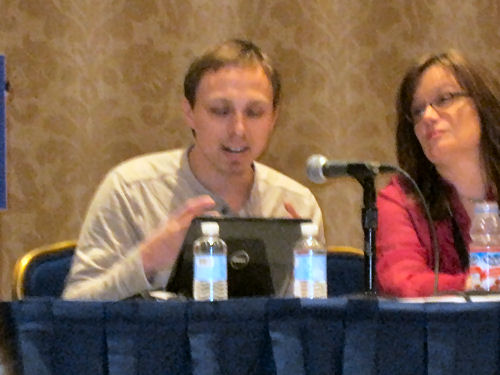 [display_podcast]
Caleb J Ross (thirstygerbil at The Velvet) was kindly invited to participate in a panel on social media during the 2011 AWP (Association of Writers and Writing Programs) conference in Washington DC. Joined by Tanya Egan Gibson, Dan Blank, Bethanne Patrick, Christina Katz, and moderator Jane Friedman, the panel succeeded in opening up and emphasizing both the possibilities and importance of social media in developing an author’s platform.
Though this topic may not initially seem like The Velvet Podcast fodder, our recent website redesign and ongoing efforts to integrate our forums into the social media sphere make this topic actually quite relevant.
Here’s the official description:
The Art and Authenticity of Social Media: Using Online Tools to Grow a Community. (Jane Friedman,Tanya Egan Gibson, Dan Blank, Bethanne Patrick, Christina Katz, Caleb J. Ross)
Social media is easy to disparage as meaningless socializing, undignified shilling, or time better spent writing. Yet sharing information online and having conversations with readers is critical to spreading the word about what you (or your organization) does. Online community building can help develop a long-term readership, plus open up new opportunities.
[display_podcast]
Caleb J Ross (thirstygerbil at The Velvet) was kindly invited to participate in a panel on social media during the 2011 AWP (Association of Writers and Writing Programs) conference in Washington DC. Joined by Tanya Egan Gibson, Dan Blank, Bethanne Patrick, Christina Katz, and moderator Jane Friedman, the panel succeeded in opening up and emphasizing both the possibilities and importance of social media in developing an author’s platform.
Though this topic may not initially seem like The Velvet Podcast fodder, our recent website redesign and ongoing efforts to integrate our forums into the social media sphere make this topic actually quite relevant.
Here’s the official description:
The Art and Authenticity of Social Media: Using Online Tools to Grow a Community. (Jane Friedman,Tanya Egan Gibson, Dan Blank, Bethanne Patrick, Christina Katz, Caleb J. Ross)
Social media is easy to disparage as meaningless socializing, undignified shilling, or time better spent writing. Yet sharing information online and having conversations with readers is critical to spreading the word about what you (or your organization) does. Online community building can help develop a long-term readership, plus open up new opportunities.

